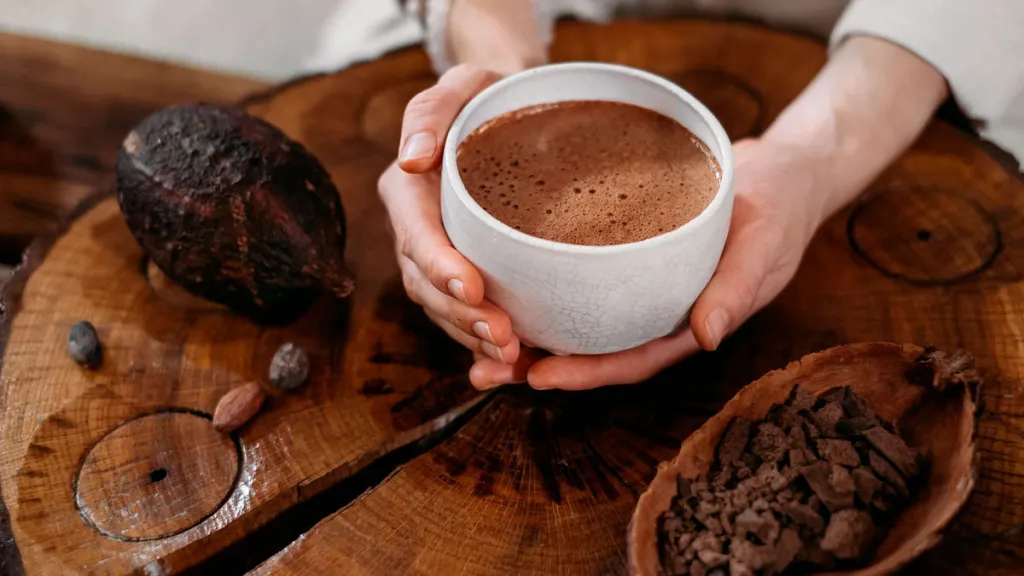What’s the difference between Cacao & Cocoa?
- Alex Simmons
- Dec 16, 2023
- 3 min read
Updated: Jan 11, 2024
While the spelling between these two are very close, there are important differences between them. A textbook definition states that Cacao is the raw form of the bean from the tree Therobroma Cacao that is used in raw Cacao powders or pastes. Once processed, the terminology switches to Cocoa, which represents cocoa powder and chocolate products. However, there is considerably more nuance to this discussion than this simple definition implies. This article will cover terminology confusion, ceremonial cacao, and the nutritional difference between Cacao and Cocoa.
Terminology Confusion
Firstly, we must note that the terminology is often flipped in chocolate bars. Most say cocoa, but some say Cacao, especially if the bean is from South or Central America. More often, the word Cacao is used in chocolate bars advertising themselves as more healthy alternatives. In these cases, it may imply raw or processed Cacao.
Ceremonial Cacao
To add further confusion, Ceremonial Cacao may be raw or roasted. There is no quality control over who can use the title and anyone can slap that sticker on their packaging. We believe there are three main factors that qualify a Cacao the be classified as Ceremonial. Firstly, the conditions under which the Cacao is grown. This includes being organic, ideally grown through agroforestry techniques rather than conventional farming, and how the farmers are treated and their relationship with the plant. These energies pass on to the Cacao and have a profound impact on the bean’s healing and spiritual benefits.
Moreover, the genetic line of the Cacao is of equal importance. How heavily has it been crossbred and manipulated to maximize the amount of beans that can be harvested? This energy lives through the ancestral line of the plant and can further weaken its healing potential. We feel these factors far outweigh rather or not the Ceremonial Cacao is raw or roasted or roasted by hand or machine. The caviat being that a bean roasted or smoothed out by a machine must not transfer heavy metals into the Cacao.

Conscious Cacao only offers Ceremonial Cacao that is organically farmed using traditional agroforestry techniques and is Fairtade certified. Our Cacao originates from the plant’s indigenous lands in the jungle beneath the Andes Mountains. It is from the Chuncho bean, which is a pure strain that has not been genetically modified or manipulated. The bean is fermented at a 70% rate, roasted, and grinded down by a machine that uses marble balls that do not transfer any heavy metals.
Nutritional Difference
100% Cacao is a robust superfood with numerous health benefits, as its name Theobromoma “Food of the Gods" not so subtly hints. Cacao utilizes all parts of the bean other than the husk. Processing the Cacao into cocoa removes the nutritional Cacao butter and additional nutrients, leaving it no longer a superfood. In general, the darker, the more nutritious, with 100% Cacao being the most robust. Furthermore, chocolate products are heavy in unhealthy additives such as palm oil, low quality dairy, and excessive sugar. If you’re a chocolate bar fan (as we are!), we recommend consuming 70%+ bars and to carefully review the ingredient list. Even better if you make your own with 100% Cacao!
In conclusion, there is much confusion around the differences between Cacao and cocoa. Not everyone is on the same page! We encourage you to replace cocoa with Cacao whenever possible and to research your Cacao before making a purchase.
Alex Simmons is an Apprentice Shaman and husband of Conscious Cacao's founder, Natalie Simmons. Natalie and Alex offer online group, couples, and 1-1 Cacao Ceremonies. Natalie also offers Akashic Records Readings and distance Reiki. Alex offers spiritual counseling and life coaching with a specialization in the integration of sacred plant medicine experiences and spiritual awakening guidance. You may learn more about their experiences and offerings on the "Offerings" page of this site.











Comments